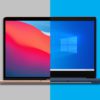In its last hardware event before the holiday season, Apple announced a new MacBook Pro that comes with the tech company’s most powerful processors ever. The tech company also unveiled the next-generation AirPods 3, new colors for the HomePod Mini, and more. Here’s everything Apple announced during its ‘Unleashed’ event, including the specs, price, and release date of all the new devices.
A Cheaper Apple Music Subscription
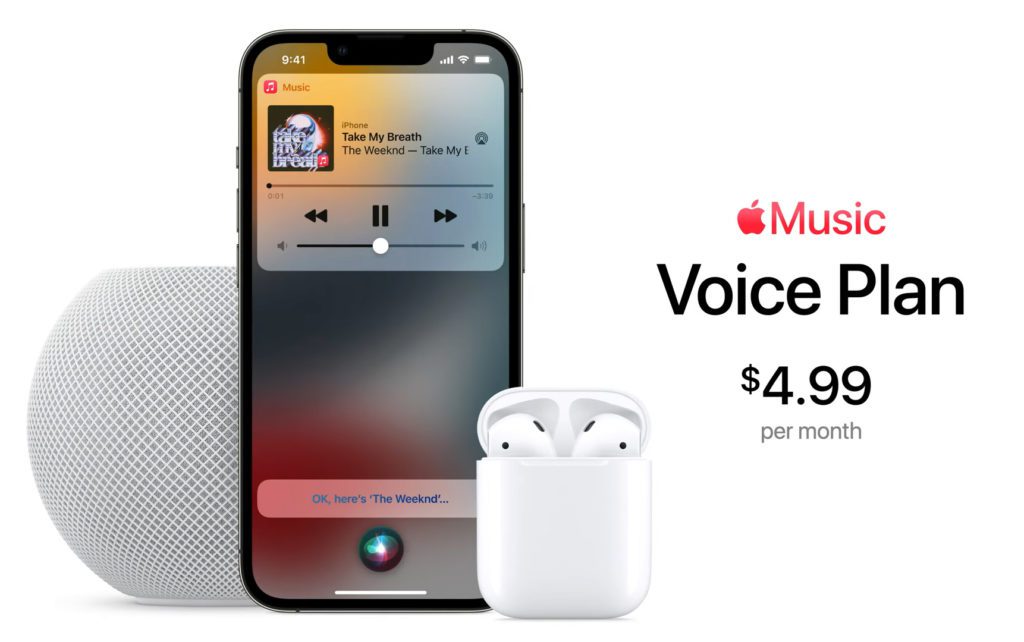
Apple kicked off its Unleashed event by introducing the Apple Music Voice plan, which gives you access to all 90 million songs on Apple Music at half the price of the current cheapest plan. However, the catch is that you can’t use the Apple Music app to stream music anymore. Instead, you can only ask Siri to search for songs and play them on your Apple devices.
So, while you can use this plan to listen to music on your iPhone, iPad, HomePod, and other Siri-enabled devices, it won’t work with third-party devices, like an Echo smart speaker. Plus, this plan doesn’t let you download songs, look up lyrics, create your own playlists, or listen to lossless audio formats or 3D spatial audio or Dolby Atmos.
Read More: What is Dolby Atmos, and how does it work?
The Apple Music Voice Plan will be available sometime “later this fall.”
More Colorful HomePod Mini
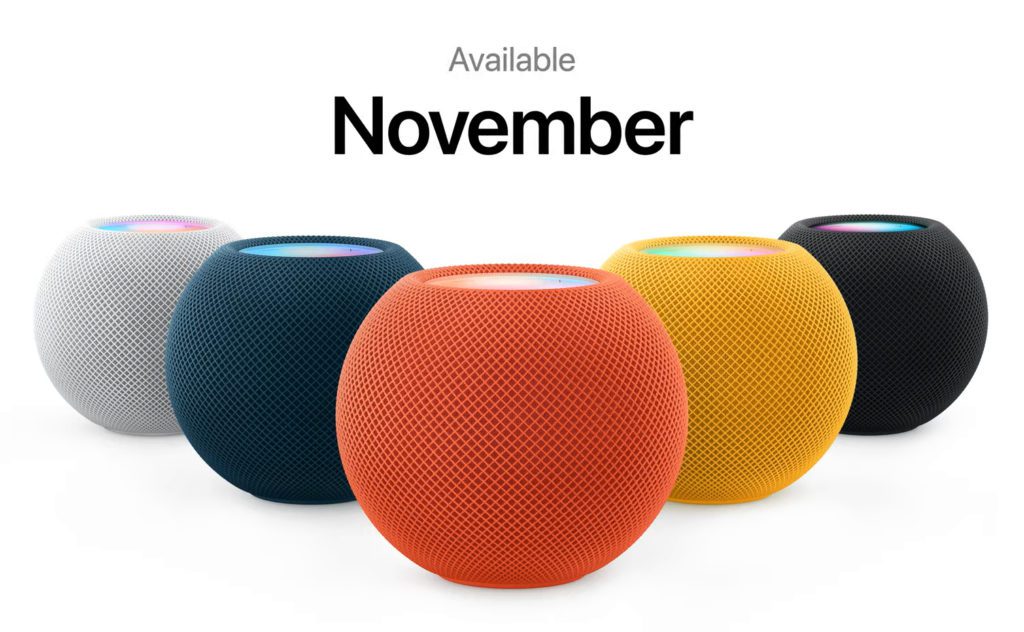
Apple gave its most affordable smart speakers a new paint job. The HomePod Mini will soon come in 3 new colors, including yellow, orange, and blue. Apple said that it also “infused color into every element” of the HomePod Mini, from the mesh fabric, to the touch surface on top, and even the power cables.
The new HomePod Mini models cost the exact same as the old black and white speaks, and they will be available starting in November.
Next-Generation AirPods 3
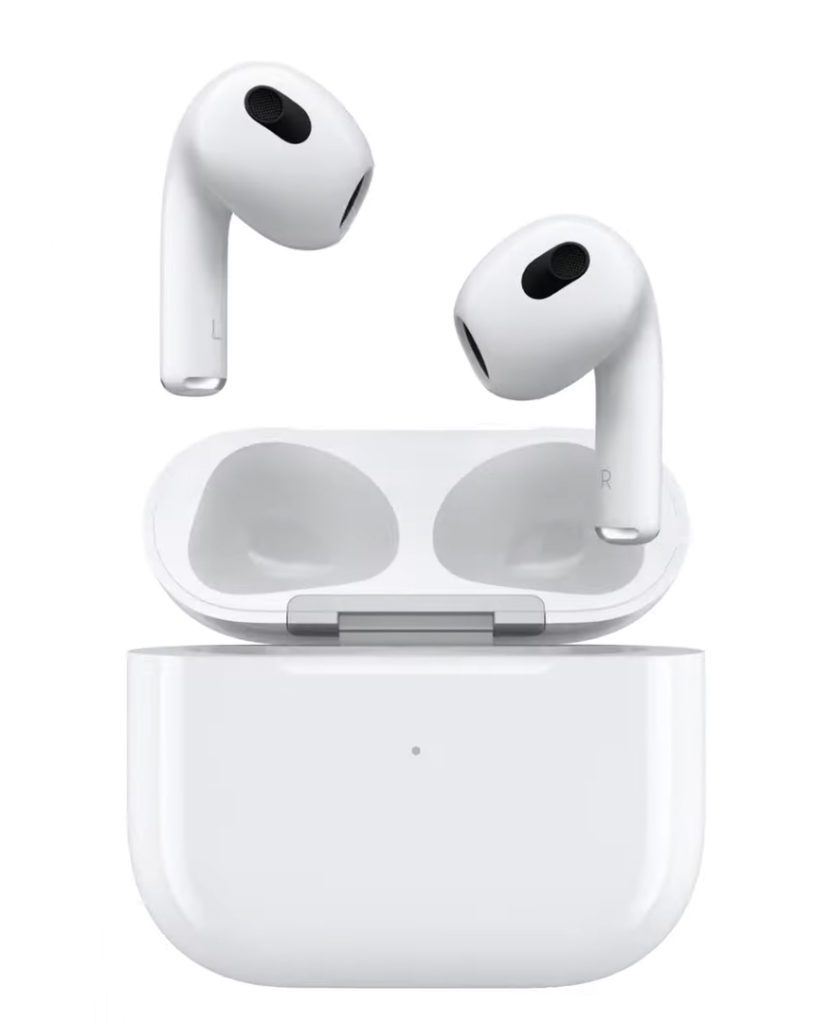
Two years after releasing the AirPods Pro, Apple announced its newest wireless earbuds during the Unleashed event. The AirPods 3 are cheaper than the AirPods Pro, but they also come with more features than the second-generation model.
The newest addition to the AirPods family even look like a cross between the AirPods 2 and the AirPods Pro. They have a shorter stem with force sensors that you pinch to control your music, just like the AirPods Pro. However, like the AirPods 2, they do not come with silicone ear tips because they don’t feature a noise cancellation mode.
Plus, the AirPods 3 have the same sweat and water-resistance rating as the Pro models, and they support spatial audio and Dolby Atmos. You can also customize the sound to the shape and size of your ear canal with the Adaptive EQ feature that was first released with the AirPods Pro.
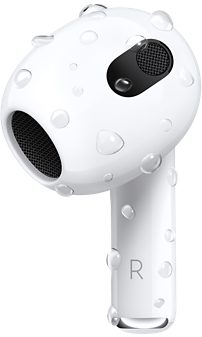
Read More: What’s the difference between AirPods Pro and AirPods Pro?
The new AirPods 3 come with a wireless charging case that has a USB-C port, which is much faster than the USB-A connector found on the second-generation model. In fact, the biggest improvement with the AirPods 3 seems to be to the battery life. Not only do they last 2-2.5 hours longer than the previous models, you only need to charge them for 5 minutes to get an additional 1 hour of listening time.
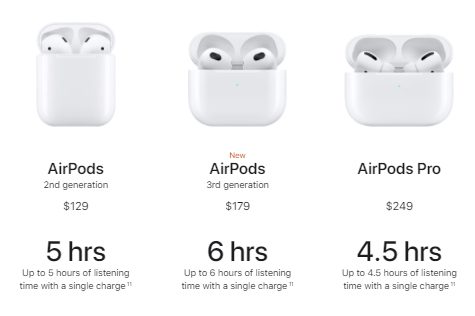
You can pre-order the AirPods 3 for $179 starting now, but they won’t start shipping until October 26. Apple is also reducing the price of the second-generation AirPods to $129, and the AirPods Pro still go for $249. However, you can regularly find the AirPods Pro on sale for under $200 these days.
The Most Powerful MacBook Pro Ever
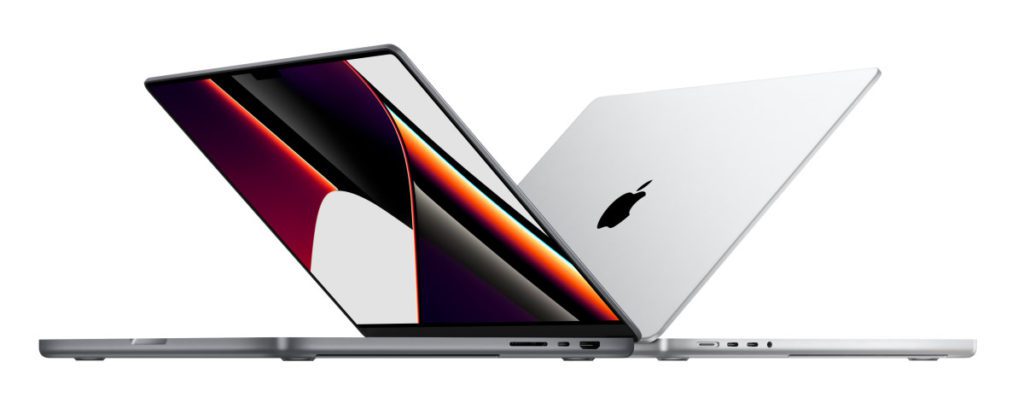
Finally, Apple ended its Unleashed event by showcasing the new MacBook Pro, which comes in two sizes: a 14-inch model and a 16-inch model. Both versions come with “the most powerful chip ever created for a pro notebook,” according to Apple.
M1 Pro and M1 Max
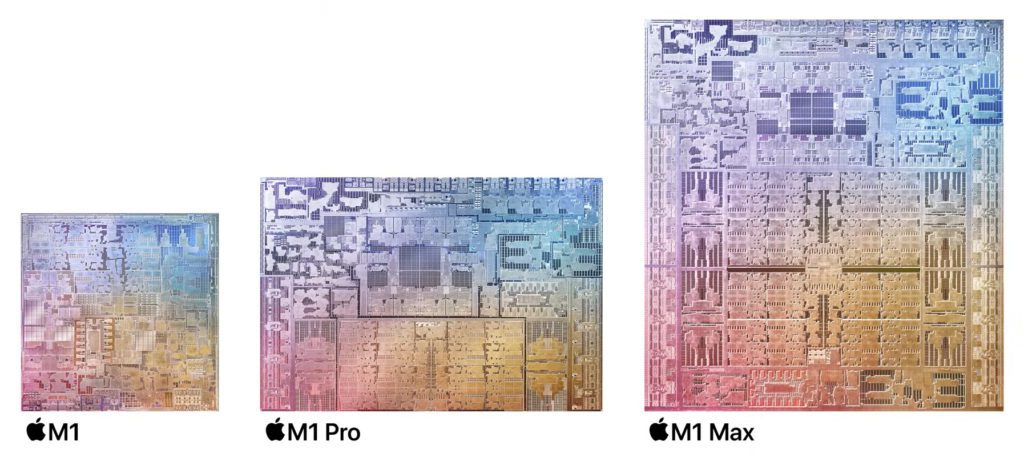
Apple’s new M1 Pro and M1 Max are different from traditional processors because the CPU also contains the graphics card, memory, and other components. This “system on a chip” architecture was originally designed for smartphones and tablets because it doesn’t require nearly as much power or cooling.
Since all the hardware is integrated into the same chip, all of the different components can exchange data much faster. For example, Apple’s “unified memory architecture” integrates the MacBook’s RAM (random access memory) into the same package as the M1, so all parts of the processor can access the same pool of data. This means, unlike traditional processors, the M1 doesn’t have to create copies of information if two components want to access the same information at the same time.
Read More: What is RAM, and how much memory do you really need?
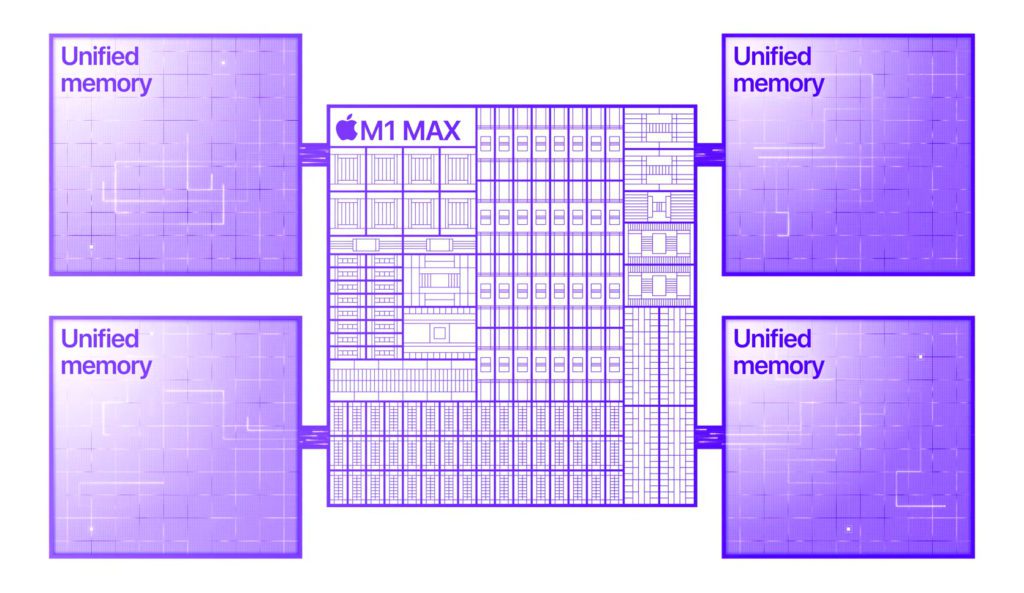
Longer Battery Life
By improving the M1, Apple was able to extend the battery life of its 14-inch MacBook Pro from 10 hours to 17 hours. And the tech company almost doubled the battery life of the 16-inch model from 10 hours to 21 hours. Plus, both models now support fast charging, and they will charge up to 50% in 30 minutes.
In fact, Apple claims that its new processors can deliver the same peak performance as “the latest 8-core PC laptop chip” while using 70% less power.
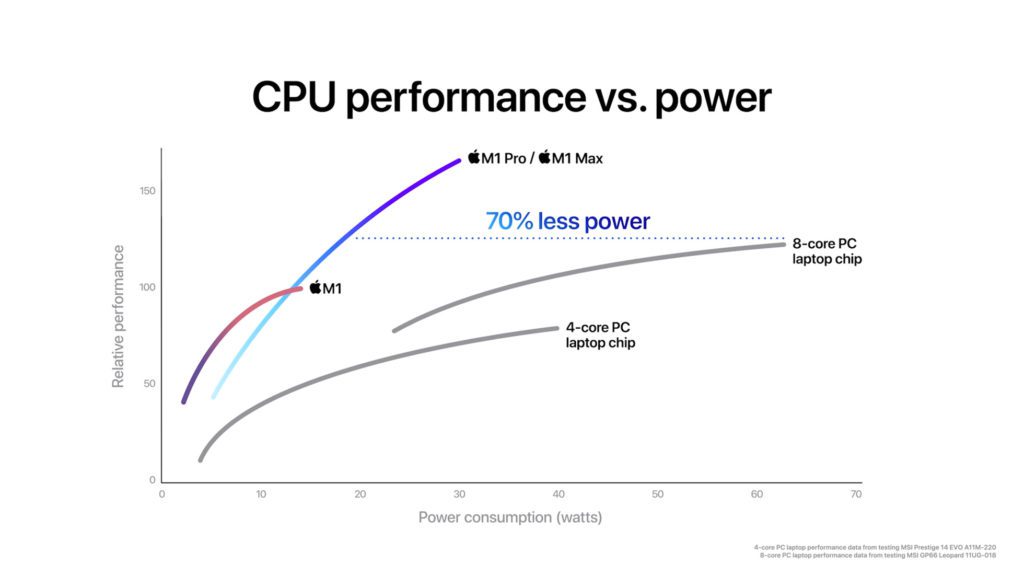
Better Display
During the Unleashed event, Apple claimed that it developed the “world’s best notebook display” for the new MacBook using mini-LED technology. This type of display is similar to most laptops, which use lots of small lights called LEDs (light-emitting diodes) that shine through filters to create an image. The only difference is that mini-LED displays use smaller LEDs, so Apple can add more of them.
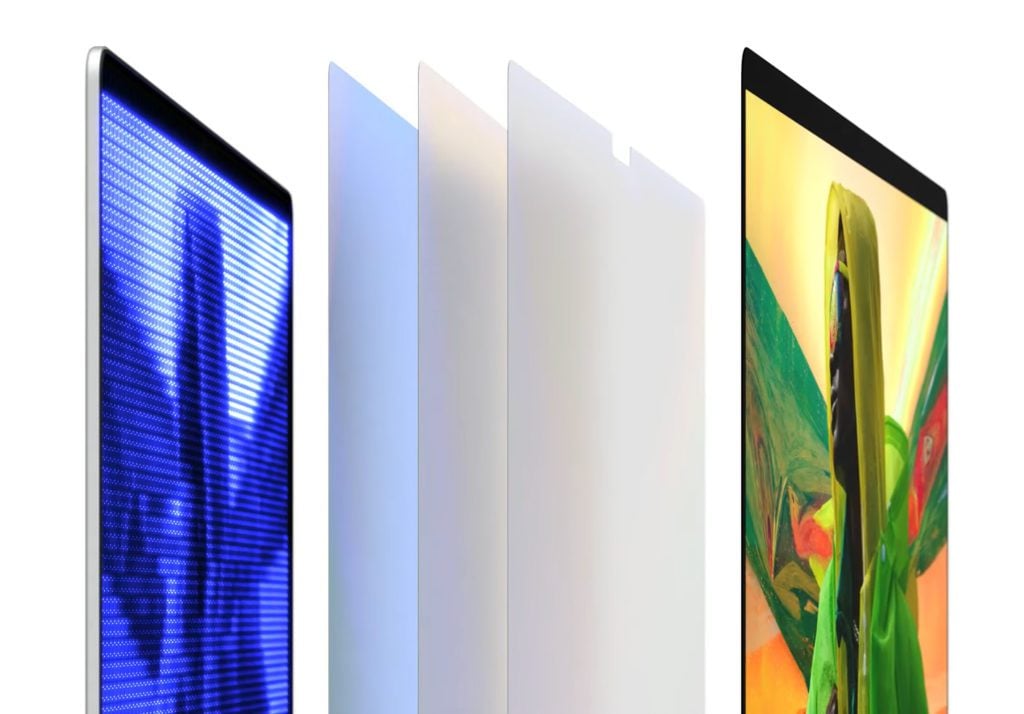
With all of these tiny LEDs, the MacBook can get three times as bright as the previous 16-inch model, and it can display 1 billion colors. Apple also uses the mini-LED technology to add local dimming zones, which means the MacBook Pro can control the brightness of the LEDs individually to give the brightest whites, the deepest blacks, and a nearly perfect contrast ratio.
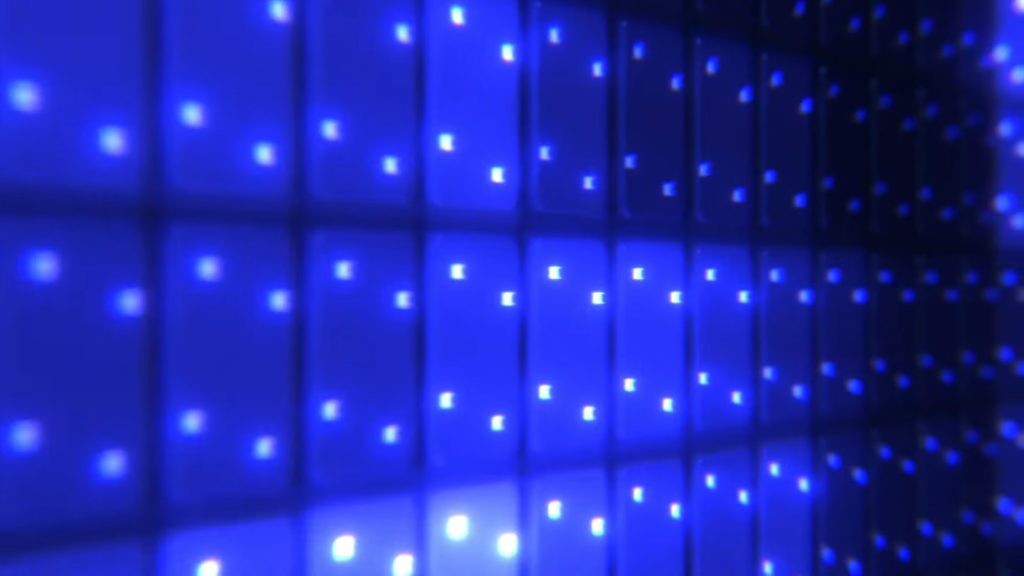
Plus, the new MacBook Pro will come with ProMotion technology, which automatically adjusts the refresh rate of your display. This helps motion appear smoother when you’re scrolling through a website, watching an action movie, or playing a video game.
Larger Screens with a New Notch
Apple reduced the bezels surrounding the MacBook Pro’s screen by 24% and the top bezel by more than 30%. While this does make the screen larger, it doesn’t leave much room for the camera. So, Apple decided to cut a notch at the top of the screen, but the tech giant assured that it shouldn’t get in the way too much because it sits in the middle of the Apple menu bar.

While this notch might be distracting for some, Apple claims that you will barely notice it if you use Dark Mode on your MacBook.
Apple Brings Back Ports
For years, Apple has been removing ports from each new MacBook. So users have been forced to carry around bulky USB hubs in order to connect their devices. Now, Apple is adding some useful ports to the MacBook Pro, including a headphone jack, an SD card reader, an HDMI port, and 3 Thunderbolt 4 ports.
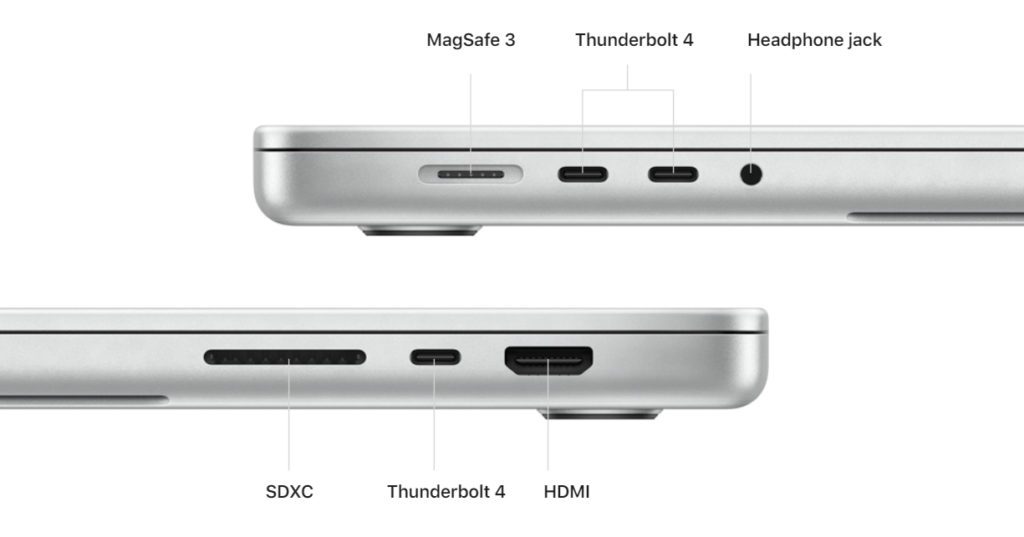
In fact, the new MacBook has so many ports that you can connect it to 2 external monitors with the M1 Pro, while the M1 Max can connect to 3 monitors and a 4K TV, all without using a single adapter.
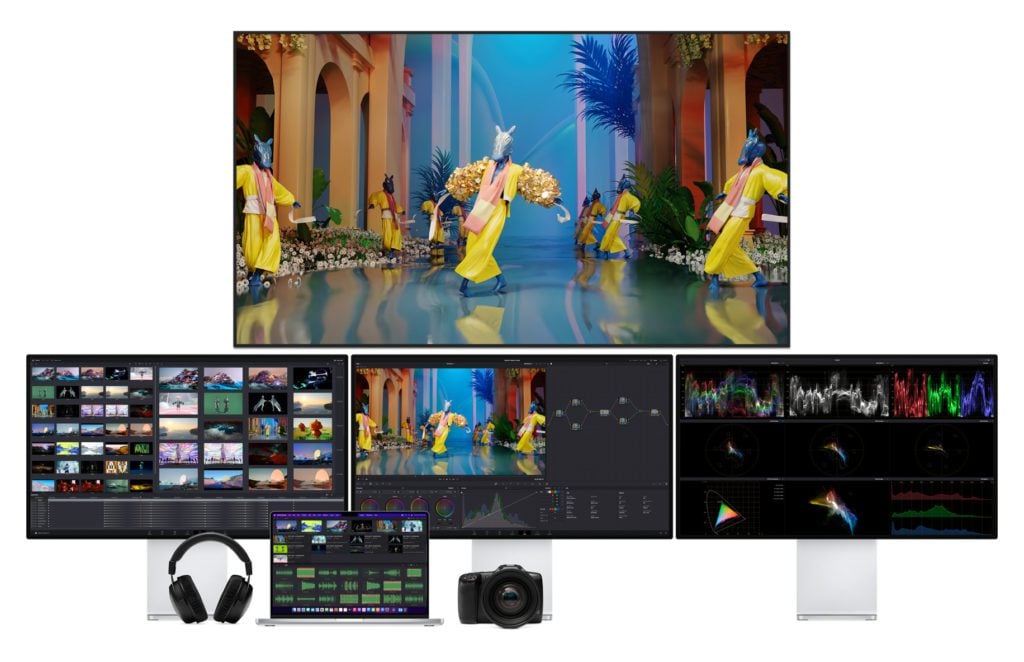
Finally, Apple brought back the MagSafe charger, giving you a dedicated power supply port. The MagSafe port has a new design that helps it charge faster. Or you can also use the Thunderbolt 4 ports to charge your Mac if you forget the dedicated charging cable.
MacBook Pro Price and Release Date
You can purchase the new MacBook Pro now, and it will start shipping on October 26. The 14-inch model starts at $1,499, while the 16-inch model starts at $2,499. However, if you choose to upgrade the processor, memory, and hard drive storage, you could end up paying around $6,000 for a fully-decked-out version of either model.
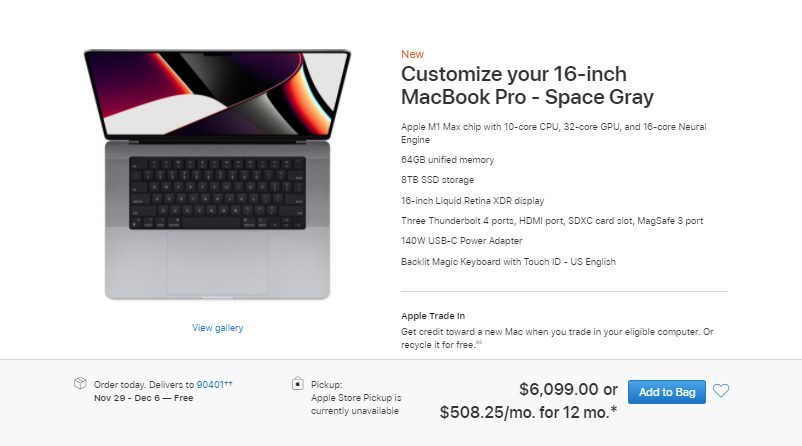
If the Unleashed event made you want to upgrade your computer, make sure to check out our step-by-step guide on how to reset your Mac to factory conditions before selling it or giving it away.
HelloTech editors choose the products and services we write about. When you buy through our links, we may earn a commission.



